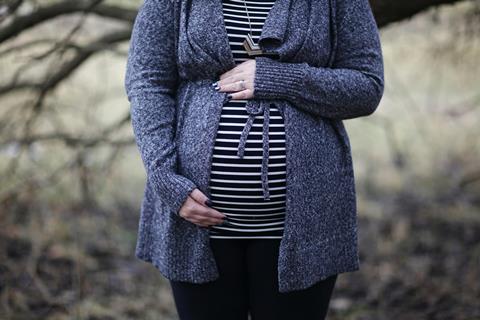As politicians debate the decriminalisation of abortion, Baroness Philippa Stroud says current abortion practices are harmful to both women and unborn babies. She’s calling for an end to the controversial abortion pills by post scheme

Discussions concerning abortion are often pitched as a battle between a woman’s rights and those of her unborn baby. However, Christians believe in the infinite value of every human being. We must not and do not need to choose between the two. Both lives matter.
Current abortion practices in the UK are harmful not only for the unborn, but also for women in the significant risks they present. Most abortions in this country now occur via the ‘pills by post’ scheme, whereby women can obtain abortion pills without an in-person consultation in a clinical context.
This scheme was introduced during the pandemic, and then made permanent via a controversial amendment to an unrelated healthcare Bill in the House of Lords, where I sit as a peer. I, along with others, warned of the dangers of this scheme at the time. Now, we can see that those warnings proved prescient.
Three risks
The pills by post scheme puts women at risk in at least three different ways.
Firstly, it heightens the risk of coercion. Sadly, women - particularly those who may be victims of abuse or trafficking - are sometimes coerced into abortions. In-person appointments, which until 2020 were mandatory before an abortion could take place, create a confidential environment in which a clinician can check whether a woman really does wish to go ahead with an abortion. This means coercion or abuse is more likely to be detected. Without these meetings, it is possible that coercion goes undetected.
Two thirds of women support reinstating in-person consultations for women considering an abortion
Secondly, in-person appointments enable relevant health risks to be assessed. Despite the assertions of the abortion lobby, abortion is not always safe for women. Freedom of Information requests suggest that 1 in 17 women who receive abortion pills by post end up in hospital. The risk of complications is heightened for some women with pre-existing conditions, but these are less likely to be picked up via a phone call than during an in-person consultation.
Thirdly, the scheme prevents a reliable gestational age check from taking place. A government review in 2023 found that the chances of complications greatly increase later in pregnancy. If women are able to obtain abortion pills past the ten-week limit for at-home abortions - and even past the 24-week statutory time limit for abortions (which, notably, is double the average twelve-week limit in most other European Union countries), this puts their health - and even their lives - gravely at risk.
Legal protections
Such a scenario may arise because a woman is genuinely unaware of her stage of pregnancy. But a small number of women have faced prosecution for illegal abortions after wilfully misleading abortion providers about their gestational age, and inducing their own abortions at home well beyond the legal limit.
Such cases have been used by the supporters of extreme abortion laws to push for abortion to be ‘decriminalised’. This led to the House of Commons passing an amendment in June - again hastily tacked on to the unrelated Crime and Policing Bill - that would mean it would no longer be a criminal offence for a woman to perform her own abortion, for any reason, right up to birth.
This law change is opposed by the majority of the public. It diminishes the few remaining protections that exist for unborn babies even after they are viable outside the womb. And by removing any legal deterrent against performing them, it would likely lead to further tragic cases of dangerous, late term, at-home abortions.
1 in 17 women who receive abortion pills by post end up in hospital
It is for this reason that I, supported by fellow peers, have tabled an amendment in the House of Lords to reinstate in-person appointments before abortion pills can be prescribed. This is the obvious solution to the small numbers of court cases that have occurred in recent years, and far more responsible than permitting self-induced abortion up to birth, which would only make matters worse. I hope peers will strike it out of the Crime and Policing Bill when they consider a separate amendment to remove the clause.
If peers were to support these two amendments, they would have overwhelming public support. A poll by Whitestone Insight in June found that two thirds of women support reinstating in-person consultations for women considering an abortion, while only four per cent favour the continuation of the status quo. Such a proposal ought to command widespread support from peers, regardless of their views on abortion.
Our current abortion laws and practices fail women as well as unborn babies. The House of Lords has an opportunity to put women’s welfare first and to prevent our already radical abortion laws becoming even more extreme. If we do so, we will be sending the important message that both lives truly matter.



































No comments yet